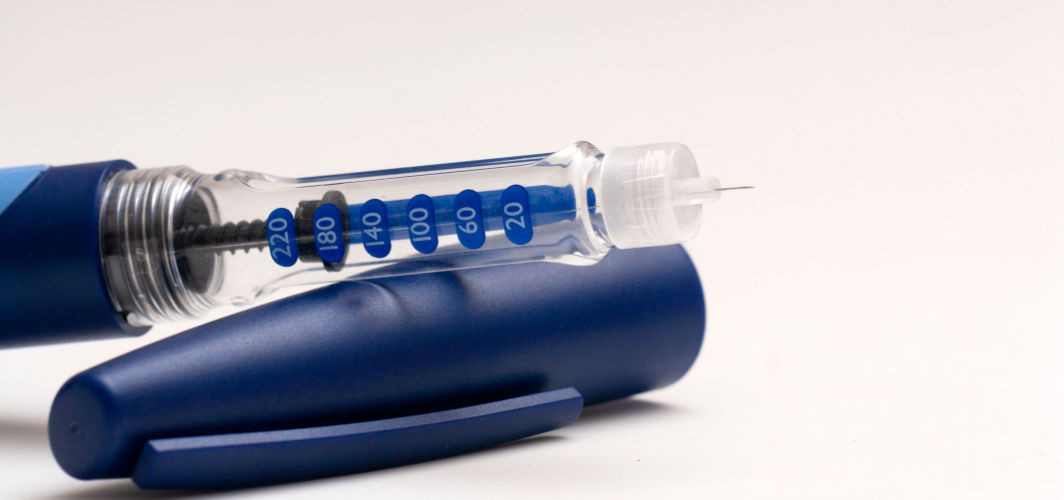Diabetes Management
The Link Between Abdominal Fat and Diabetes
5 min read
By Apollo 24/7, Published on - 05 January 2021, Updated on - 13 September 2023
Share this article
0
23 likes

What is abdominal fat?
- Visceral fat: This fat accumulates around the organs. It cannot be felt as it is stored deep within and is firm.
- Subcutaneous fat: This fat accumulates under the skin. It can be felt easily and is soft.
- Ectopic fat: This fat not only accumulates in the fat tissues but also in regions where fat is generally present in small quantities, such as muscles, heart, liver and pancreas.
How is abdominal fat linked with diabetes?
- A meta-analysis published in the journal Hindawi included 41 studies in which scientists examined the effect of fat tissues in non-diabetic people and in those diagnosed with diabetes or prediabetes. The results of the study showed that diabetes was more prevalent in people with visceral fat as compared to those with subcutaneous fat.
- Another study conducted in Shanghai, China in 2018 included 4658 diabetic participants who underwent several tests such as blood pressure, glucose, lipid profile, and urine culture and measurements such as height, weight, waist circumference, neck circumference and hip circumference. The results of the study showed that people with high visceral fat were prone to diabetic kidney disease, cardiovascular disease and cerebrovascular disease (related to the brain).
- A research conducted by Dr Mohans’ Diabetes Specialities Centre & Madras Diabetes Research Foundation, Chennai, included 26000 subjects to determine the effect of visceral and subcutaneous fat (abdominal fat) on insulin resistance in people with no history of diabetes. The result of the study showed that people with visceral fat showed they were more at risk of developing metabolic syndrome irrespective of their age, gender, generalized obesity and glycemic control.
In any case, you doubt having diabetes, book your appointment with India's well-known diabetologists or endocrinologists and have a proper diagnosis of your condition and avail the most effective treatment for diabetes.
What can be done to manage central obesity?
- Exercise regularly for at least 30 to 60 minutes a day to control weight and lose belly fat. One can practice moderate-intensity physical activities such as swimming, brisk walking, cycling and yoga.
- Practice strength training, such as lifting weights, to cut down abdominal fat.
- Avoid simple carbohydrates such as white bread, polished rice and grains, and carbonated drinks. Instead, add complex carbohydrates such as whole grains, vegetables, fruits and lean protein to your diet. While maintaining a healthy diet, lay emphasis on controlling the portion size.
- Consume healthy fats such as flax seeds, sunflower seeds, olive oil, nuts and nut butter.
- Significantly cut down and limit the consumption of alcohol, to an occasional drink.
- Sleep for at least 7 hours a day.
- Check the blood sugar levels routinely, especially if you have a family history of diabetes.
Conclusion
Diabetes Management
Consult Top Diabetologists
View AllLeave Comment
Recommended for you

Diabetes Management
Diabetes and Dry Eyes: Is there a Connection?

Diabetes Management
What are the Factors that Influence Insulin Action?
Insulin action refers to the ability of insulin to regulate blood sugar levels and various metabolic processes in the body. Insulin action is influenced by factors like, your weight, physical activity, diet, hormones, medications, stress, sleep, age and genetics. Insulin sensitivity varies among individuals and can be affected by lifestyle and genetic predispositions. Maintaining a healthy lifestyle through diet, exercise, and stress management is essential for optimal insulin action and metabolic health.

Diabetes Management
Can Diabetes Be Diagnosed Without Symptoms?
This article emphasises the importance of early screening for asymptomatic diabetes to prevent complications and guides readers on diagnostic methods, risk factors, and proactive management strategies.
Subscribe
Sign up for our free Health Library Daily Newsletter
Get doctor-approved health tips, news, and more.
Visual Stories

8 Fruits That are Incredibly Healthy for Diabetes
Tap to continue exploring
Recommended for you

Diabetes Management
Diabetes and Dry Eyes: Is there a Connection?

Diabetes Management
What are the Factors that Influence Insulin Action?
Insulin action refers to the ability of insulin to regulate blood sugar levels and various metabolic processes in the body. Insulin action is influenced by factors like, your weight, physical activity, diet, hormones, medications, stress, sleep, age and genetics. Insulin sensitivity varies among individuals and can be affected by lifestyle and genetic predispositions. Maintaining a healthy lifestyle through diet, exercise, and stress management is essential for optimal insulin action and metabolic health.

Diabetes Management
Can Diabetes Be Diagnosed Without Symptoms?
This article emphasises the importance of early screening for asymptomatic diabetes to prevent complications and guides readers on diagnostic methods, risk factors, and proactive management strategies.
